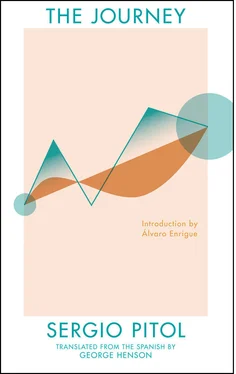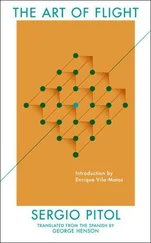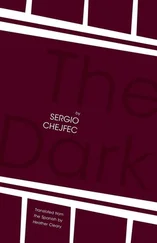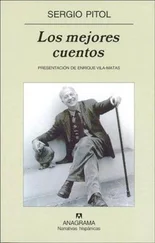This explains the publication of the authors who had been punished in years past, the classics, so to say, the executed, the silenced, those exiled to the West. Mandelstam, Pasternak, Akhmatova, Tsvetaeva, Babel, Bulgakov, Pilnyak, Remizov, Bunin, others — whose books in Moscow and Leningrad were sold in foreign currency stores, but that members of writers’ unions could acquire in rubles and at a very low price; and also, and above all, books by contemporary authors that touched politically thorny issues like Chingiz Aitmatov’s The White Ship , or The House on the Embankment and The Old Man , by Yuri Trifonov, and others that, published begrudgingly and in limited editions, arrived in the bookstores where they sold out in less than an hour, but that in the ensuing days had already been devoured by thousands of readers, and the Taganka Theater, directed by Yuri Lyubimov with an international audience, and lines a mile long of Russians in search of tickets to see the stage version of The Master and Margarita by Bulgakov. The cinema of Klimov and Gherman, and foreign films not announced anywhere that were projected at ten or eleven at night, in a cinema without marquees, the façade with no lights, before a discerning and enthusiastic audience of filmmakers, actors, writers, people of culture, who found out from friends, who knows how, or the painters’ workshops that one visited to acquire paintings by the new guard, especially abstracts, and many things that were part of my daily life when I was a cultural attaché and which foreign correspondents resented knowing, because it was easier to continue a relentless vision that maintained a Cold War climate. I’m still working on the outline of my next novel. It will be set in several places: Istanbul, Rome, Cuernavaca or Tepoztlán, and somewhere in the middle of the Tabasco jungle. I also have sketches of the characters. From the absurd dreams of the last two weeks and the strange fecal coincidences that coalesced between planes and hotel rooms has emerged a possible title: Señora la Divina Garza [The Mrs. Divine Heron]. Ten years ago, a young filmmaker who was married to a Colombian girl spoke to me in Moscow about the trends he perceived in the imagination of his contemporaries, university students or young professionals, artists or scientists, friends of his or cousins, or friends of friends, people with a name, with a familiar face, not the abstraction of surveys, and these trends in order of importance were: a) Berdyaevists, those who followed the Christian thought of Berdyaev; b) Neoslavists, that is right-wing nationalists; c) pluralists, democrats of various shades, one of which he ascribed to; d) Zen-Buddhists; and e) Che-Guevarists; the latter two categories, a minority. I asked him about Trotsky: “Are there no Trotskyists?” And the answer was categorical: “Almost none.” “Why?” “Because they think that had he won the ideological struggle, he would have followed the same totalitarian path as Stalin, perhaps without the monster-like brutality. His theses on art and literature have no appeal for us, the military tone is palpable, the brutality of the time, perhaps. Some of us have wondered: How could the Formalists have survived the purges: Shklovsky, Eikhenbaum, and Tinianov, or even the less visible: Tomashevsky, Propp, others? And the only answer one finds is that they were saved thanks to the verbal violence with which they were attacked by Trotsky. It was a safeguard for life. If they were scorned in such a way, they must have had some virtue. Bukharin, however, executed during the purges following a thunderous trial, for being a Trotskyist, nowadays, I don’t know why, is beginning to attract scholars and disciples. Now, many like me talk about memory, about what we hear, I personally have not read Trotsky, ever.” Not every Russian reacted like a steamroller; there were those, and more than a few, who were extremely knowledgeable and possessed an exceptional artistic sensibility. All one had to do was go to a concert in Moscow given by a great artist to become infected with the intensity of the reception. One felt as if he were in a temple from the seats, surrounded by a kind of religious halo which came not only from the artist who was performing a piece on stage, but also from the hall, from the breath of the several hundred faithful who followed note by note with all their senses, their intelligence and spirit, the progression of a concert. And at the end came the apotheosis, the asceticism, the mystical union with the mystery. Rarely have I experienced so passionately opera and theater as in the theater of the Moscow Chamber Opera, an insignificant hall lost in a nondescript neighborhood of the city, which didn’t even have the right to advertise on billboards, or in newspapers, or to reveal their existence on the face of the building. However, despite the official silence, getting tickets at that venue was an extremely complicated feat. They were bought, and with great difficulty, at least two months in advance. It was not a prohibited place, or underground, or anything of the sort; but its existence was only tolerated. To enter there was akin to feeling like a Christian submerged in the catacombs during times of persecution. It was a sanctuary, a protected space where one went to celebrate a sacred rite. There I saw The Rake’s Progress by Igor Stravinsky. There was no physical distance between singers, orchestra, and audience, which felt bound by the lack of space and the passion of the moment. I never remember feeling such intense emotion and anguish as in that performance, nor have I felt joy comparable to that I experienced in a hilarious performance of The Nose , by Shostakovich, based on Gogol’s story, presented at that miniscule theater. All this was possible in such a complex, unreal, Gogolian, Kafkaesque, and Dostoevskian society as was Moscow at the end of Brezhnev. Political scientists turned society into a page without reliefs; their position, usually, was to reduce any phenomenon to the statistical or the ideological. What they said about Brezhnev and Suslov, the terrifying ideologue of the Central Committee, and all that gang of decrepit old men was true; it was also true that there was censorship of many forms and huge deficiencies, but there were also top-notch people, intelligent, refined, imaginative Russians, and also spectacular individuals. Oh, and the question of the soul! The Russian soul! Cioran said: “After the war, Laurence Olivier and his company went to Moscow to perform Romeo and Juliet . When the show ended, overwhelmed with emotion, the Russians embraced each other as they would Easter night. That is having a soul.” Cioran could say it, but I could not. Some Mexican friends were concerned about my naïveté , my stupidity when I commented on these phenomena of Russian life. And in Spain it was impossible to open one’s mouth. Once, at the end of a tremendously fun party in Barcelona, I mentioned something about the Slavic soul and a dear friend became violently enraged. He insulted me as if I were sugarcoating the brutality of the Gulag, as if I wanted to erect a rose-colored façade to conceal Stalin’s crimes. I don’t think I’ve ever felt so hurt, so unfairly judged. Something similar happened to me at a publishers’ lunch in Madrid. Anyway…! Well, things have changed, history has moved on…At the Metropol, Kyrim was already waiting for me. He had prepared a wonderful surprise. He had located some of my friends, most of whom were students of theater who were already in their last year when I lived in Moscow and were beginning to practice their craft playing small roles in training theaters. He made a reservation at the most sophisticated private restaurant that exists in the city today: a spacious dacha with several rooms facing the Novodevichy Convent, in whose cemetery Chekhov’s grave can be found. The wide Moskva River provided us a superb view of the monastery and its walls. He had booked them early, due to the little time I had left in Moscow. It was the most pleasant moment of the trip. Everything they said to me, the excitement during the encounter, the immense joy, the laughter, because everyone, ever since I’ve known them, has been blessed by a tremendous sense of humor, each with a different range; thanks in large part to them, my vision of Russia, its people, its culture was different from that of many other diplomats. At the lunch organized by Kyrim there were fourteen or fifteen friends: two Seryozhas, Oleg, Vitia, Asim, Alyosha, Sonia, Alexandra, some wives or husbands whom I didn’t know, and two babies, asleep beside us in their carriages. Aroutioun was missing, the person with the biggest personality, the most worldly, the backbone of the group in the past, the son of a famous actress, grandson and nephew of actors emeriti, of musicians and scholars — in short, part of a famous clan in Armenia; and the two Sashas arrived, one originally from the Caspian Sea, and the other from the Urals. They feel good about life. These young people do at work today what just a few years ago would have seemed utopian. They are full of enthusiasm; fire, I dare say. We talked about Georgia, which for them is sacred ground; they shamed me for not having seen the new films made there these days; for a while, the conversation revolved around Aroutioun, and countless anecdotes came to light as well as signs of pride in being friends with that little genius who had already performed Hamlet and Romeo and the Cid, and the student in The Cherry Orchard , and the young symbolist writer of The Seagull , and went with the national company of Yerevan to the Edinburgh Festival; but, on the other hand, Oleg, a talented Russian from Estonia, the young leading man of the Riga Theatre, had to emigrate to Moscow, because the Russians were displaced from the Republic of Estonia and the theater was closed, and he is now having a hard time in Moscow. We remembered lots of moments from the past and then, when I said goodbye to them, those overwhelming Russian goodbyes that never end, where there are hugs and tears, and eccentric and sweet exchanges, I felt like an orphan of the world, a stray dog in a hostile world, like that of Bulgakov in Heart of a Dog , but also felt an immense happiness to see how happy they are. Walter Benjamin, after a catastrophic love affair in Moscow, disillusioned by many things, considered excessively orthodox and sectarian in his political views there, arrives to his homeland and the first thing he yearns for is human warmth, contact with others. “For someone who has arrived from Moscow,” he writes in his diary, “Berlin is a dead city. The people on the street seem desperately isolated, each one at a great distance from the next, all alone in a broad stretch of street…” 34
Читать дальше












